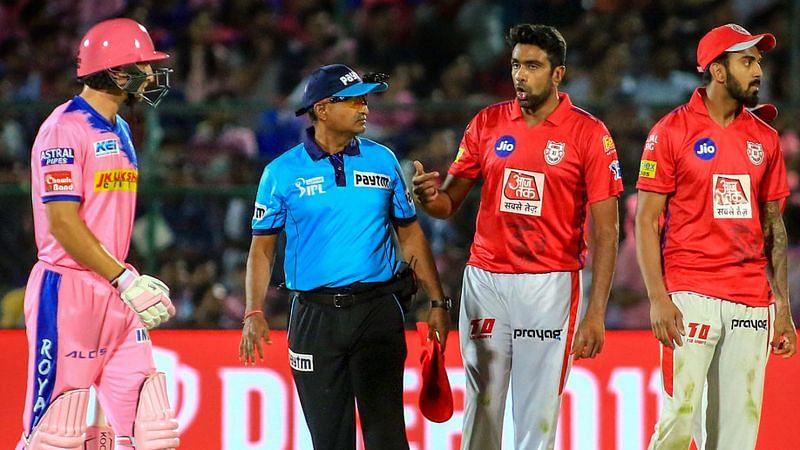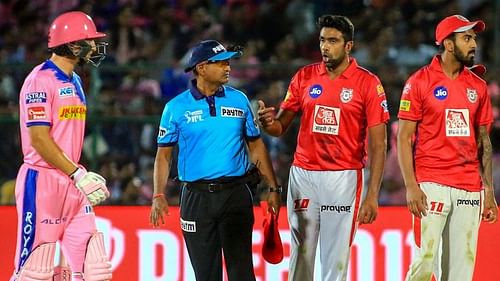
Mankading: Finding the balance between laws and ethics

‘The law has to take precedence over the spirit of the game. Ethics can be a very subjective and complicated aspect. Law and ethics are independent from each other.’
The laws of the cricket can sometimes prove to be a huge grey area. Each law of cricket has different interpretations. With the onset of technology many umpiring decisions have come in question.
The ‘mankading’ fiasco has raised a million eyebrows throughout the cricketing world on all social media platforms. People are free to express their own opinion. The spirit of the game is a fuzzy and subjective thing. The debate between law and ethics is a huge conundrum.
Let us understand the concept of mankading in the game of cricket. The non-striker can be run out before the bowler has released his delivery if he has backed up too far to get an unfair advantage while running.
The colloquial term ‘mankading’ goes all the way back to 1947 where for the first time a batsman was run out in this fashion. The great Indian legend Vinoo Mankad had dismissed Australian batsman Bill Brown. The dismissal was faced with harsh condemnation as it was not in the spirit of the game. From that day onwards, such run outs were termed as mankading.
This controversial issue was re-opened once again in an IPL match on the 25th of March 2019, when Indian spinner Ravichandran Ashwin decided to mankad English opening batsman Jos Buttler.
The Marylebone Cricket Club (MCC) law 41.16 on mankading has recently been amended that ‘if the non-striker is out of his ground at any moment the ball comes into play, until the instant the bowler would normally have been expected to release the ball’. The focal point of this controversy lies in whether Ravi Ashwin stopped in his delivery and Butler kept going expecting Ashwin to release the ball.
If the bowler intentionally tried to deceive the batsman by doing a fake action then it would completely abolish the spirit of the game. Since Buttler was out of his crease when Ashwin ripped of the bails, he adjudged out by the third umpire. This conundrum needs a solution. Now what does one understand from the spirit of the game. It is necessary to play fair and be competitive at the same time. 'Spirit of the game' may be interpreted differently from person to person. Ethics is a vast field which has no boundaries.
Law and ethics usually do not go hand in hand. Everything that is done within the law may not be ethical. The law should always take precedence over ethics, as it has been written and codified for a specific reason. The best example of this dilemma is the principle of utilitarianism by Jeremy Bentham which talks about ‘the greatest good of the greatest number’.
This principle has been crystallised as a part of our Indian Penal Code as an Act of Necessity under S.80. It refers to any act done without criminal intent to prevent greater harm. Now the ethics behind this provision has always been in question so there haven’t been too many cases involving this section.
Now, let's take, for example, a ship cannot accommodate all hundred people and two people have to jump overboard in order for the hundred to survive. Is it ethical? The same question pops up again as it is well within the law.
Similarly we have different ways of reducing our tax payments even though we are aware that the money is going to the poor and government welfare schemes. Is that the spirit we want to live by? Again this debate has no end, there can never be one solution. Definitely the law is drafted based on ethical principles and moral values but it cannot always uphold a high moral ground. It is based on equity, justice and fairness.
Coming back to the mankading incident, there is no right or wrong in mankading a batsman. It can be said that a warning should be given to the batsman before an appeal is made for mankading.
But that is where the loophole lies, the law does not specify that a warning needs to be given to the batsman before appealing. It is entirely in the discretion of the bowler and the captain. With the absence of legal obligation there should not be any ethical conundrum.
The MCC clearly wanted to make a law which is inclined towards the bowlers as cricket is always a batsman’s game. In my opinion, if the MCC believed this law as hampering with the spirit of the game, they would have changed the law to add a compulsory warning to be given to the batsman. For ensuring the spirit of the game the law should be amended accordingly otherwise this controversy will never be put to rest.
Follow Sportskeeda for all the updates on IPL score, purple cap, points table, schedule, news, orange cap and fantasy tips.